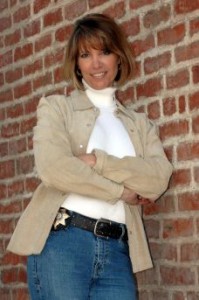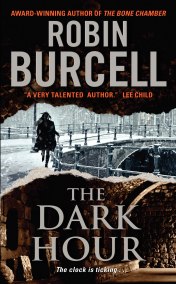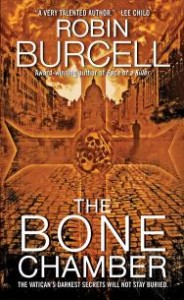
I thought the succinct bio from author Robin Burcell’s webpage would do the trick in introducing her to those who haven’t already read her suspenseful novels.
“Robin Burcell, an FBI-trained forensic artist, has worked in law enforcement for over two decades as a police officer, detective and hostage negotiator. She is the author of the Anthony Award winning SFPD
Homicide Inspector Kate Gillespie novels and FBI forensic artist Sidney Fitzpatrick series.
I’ve known her internetly (that should be a word), for over a decade and have come to respect the tough ex-cop, mother, and writer. Her experience says it all, and you know you’re reading the real deal the minute you pick up one of her books. As my new usual, I’ve asked Ms. Burcell 10 questions, and she has been generous of her time to thoughtfully answer them. Check out her website and bibliography.
Q 1. Robin, tell the potential buyer what makes your series a standout.
A. When you pick up one of my books, you’re getting some authenticity on how law enforcement works. Whether it’s the police procedure or the adrenalin rush of what it feels like to be on the edge of something dangerous, I draw from real world experiences—then enhance it with a very vivid imagination!
Q 2. As an ex-cop, and a female, did you experience any sexism in a generally male dominated profession?
A. Absolutely. I’m grateful that much has changed in the world of law enforcement, and that women are more accepted. I was the first female police officer in my department and it was quite the rocky road. There are still issues, still holdouts in the good ol’ boys club, but it’s not just in police work. I think this is experienced anywhere that women are involved in the workforce.
Q 3. Having dealt with true crime, is it tougher or easier to write fiction about the things you have seen?
A. In the beginning it was much harder to write about crime. In fact, my first fiction novel ever was a romance, because I absolutely couldn’t imagine coming home from a day working patrol, then writing about police procedure. (Even though the protagonist in that romance is a cop, I think because it was a time-travel romance—with a dash of mystery thrown in—I was able to justify in my mind that it wasn’t about crime, therefore it was okay to write.) But a friend, a romance writer, actually, convinced me that I should be writing police procedurals, not romance. She pointed me toward Patricia Cornwell’s (early) books, and I picked one up, read it, enjoyed it, and began to think I might have a chance in writing a decent police procedural.
The interesting thing is that I found that writing about crime and police procedure became very therapeutic. Had a bad day at work? The suspect got the best of you? Your captain pissed you off? No problem. Handle it all fictionally. Suddenly I was walking around work with a new bounce in my step. Not only was it much cheaper than therapy, it brought in a bit of income, too!
it all fictionally. Suddenly I was walking around work with a new bounce in my step. Not only was it much cheaper than therapy, it brought in a bit of income, too!
Q 4. Have any of your past police cases shown up in your fiction, with names changed to protect the innocent? Any past co-workers suffer a fatal wound?
A. Hehehe… See above comments about captains! As for past cases and such, the truth is that all writers do best when they’re writing about something they’ve experienced. In FACE OF A KILLER, the body that turns up in the marsh is based on a case I worked, where I had to go to the morgue to do a sketch of what was left of a woman’s corpse in hopes of getting an identification on her. Hard to investigate a homicide when the body can’t be identified, and that is often the first step in solving a murder.
Q 5. With police experience, do you think that gives you some extra insight into character and techniques used by a typical criminal?
A. For me, what makes a good book is more about the character. What makes him or her tick? The techniques used in the crime and the detection are secondary. But when you can bring all of it into a story in the right way, it certainly gives it more depth and makes for a better story.
Q 6. I recently wrote an article on sociopaths. As a police officer, have you encountered any criminals you pegged as sociopaths? Are you able to distinguish them from the general criminal population?
A. I’m not sure this is something easily done in the few minutes that an officer has with a person during the course of a normal contact, where you’re thinking: Oh, this person is a sociopath. But I think the officer can definitely tell when something is off. It’s probably more of an instinct the officer has, perhaps comparing the person to those the officer has dealt with in the past. And even then, they might not be thinking sociopath as much as he is someone they need to watch.
Q 7. I also wrote an article on using male pen names. Have you ever considered using a male pseudonym to gain male readership?
A. Had to laugh at this question! I received an email recently from a reader, who stated that he saw THE DARK HOUR by some author named “Rob Burcell” on the shelf. He picked it up, read the back, thought it sounded good, and bought it. It wasn’t until he got it home and opened it up to start reading before he realized it had been written by a woman. He was not happy. Apparently there was a price sticker on the last two letters of my first name. He said he doesn’t normally buy books by women, because they don’t write the stuff he likes to read, and he was a bit worried. But he figured he’d sit down and give it the 15 page test and would know for sure by then if he could continue on. He started it, didn’t put it down until late that night, then finished it the next day. He went out and bought the rest of the series. I am now on his must-read list. I’ve had a few male readers write to me and tell me similar stories. So, I think that’s a long way of saying, yes, the thought has crossed my mind.
 Q 8. How did you transition from law enforcement into writing about crime?
Q 8. How did you transition from law enforcement into writing about crime?
A. I started writing crime novels back in the early 90s, and I retired from law enforcement in 2009 after 27 years on the job. So I guess you can say I made the transition slowly!
Q 9. How difficult was it to find a publisher for your kind of crime fiction?
A. Not difficult at all. HarperCollins is and always has been my publisher for the last 10 books. They picked me up as a budding romance writer. Only I was having a difficult time writing romances. (Might have been the twins I gave birth to!) Never wrote more than the one. When I approached Harper with the idea of writing a crime novel, they embraced it.
Q 10. What was the worst crime you experienced in your career, and what was the most ridiculous, something that may make Weird News of the World, like a criminal getting stuck in a chimney trying to break and enter.
A. Hmmm… I’ve been involved, peripherally, in a lot of horrific cases with other agencies because of my forensic art, assisting them with the sketches of suspects or murder victims. Probably the worst that I had an active part in our own agency was the kidnapping and rape of a young girl. I did a sketch on the case. It made national news. Because of the sketch we had him identified before we even caught up with him a couple days later. The girl was returned home safely at that time. I’m glad to say he will be sitting in a jail cell for a very long time.
Weird cases… I think one of the funniest (at the time) was a kid who was a cook at a restaurant, which was robbed early one morning by a young man with a gun. He sat down with me to do a sketch. It was one of those rare, amazing sketches that took very little time at all. Only one problem. The male suspect looked a lot like me, but with short hair. It didn’t take a rocket scientist to know something was off, and when we looked into it further, we discovered it was an inside job. He and his brother had set it up. But he couldn’t use his brother’s face for a description, so he used mine!
